Angela Vasovic August 2020 ORCA Fellow / Mentor: Professor Bruce Cronin The City College of New York [email protected]
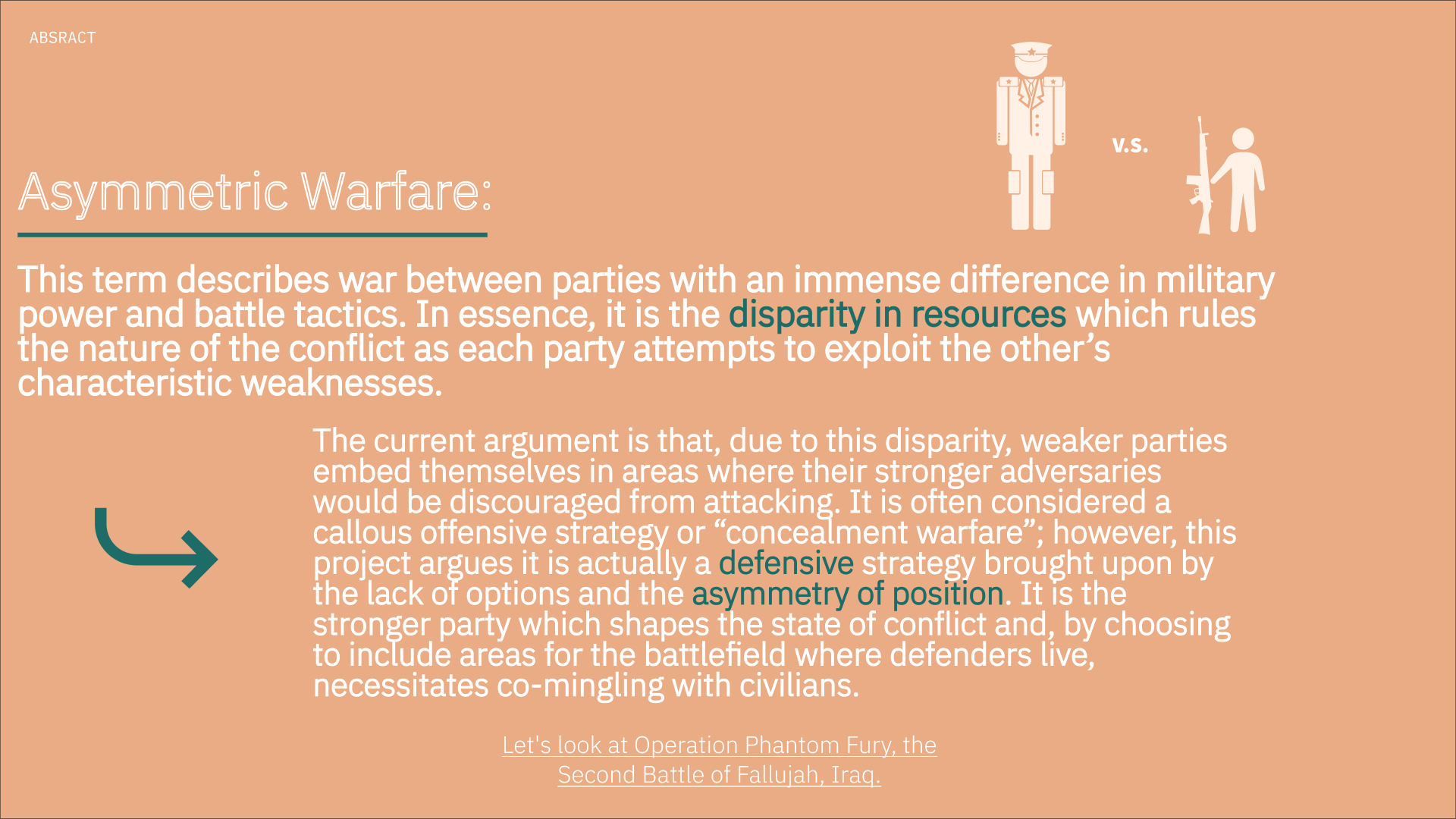
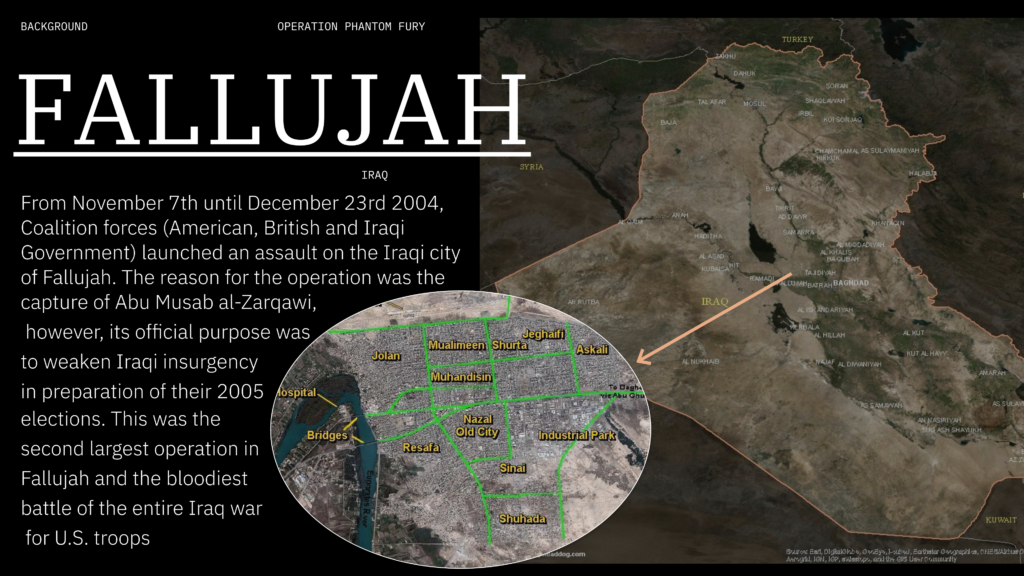
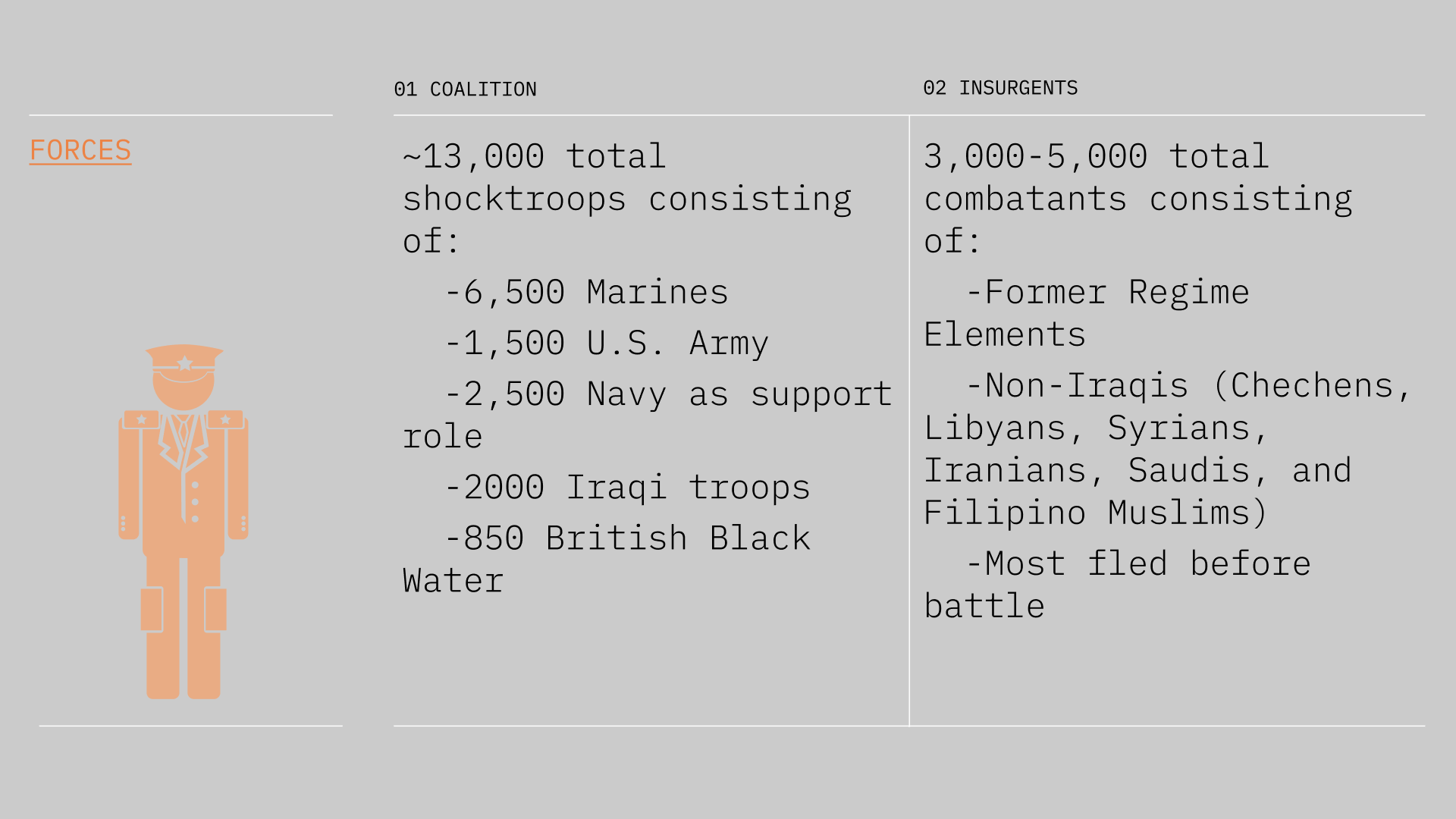
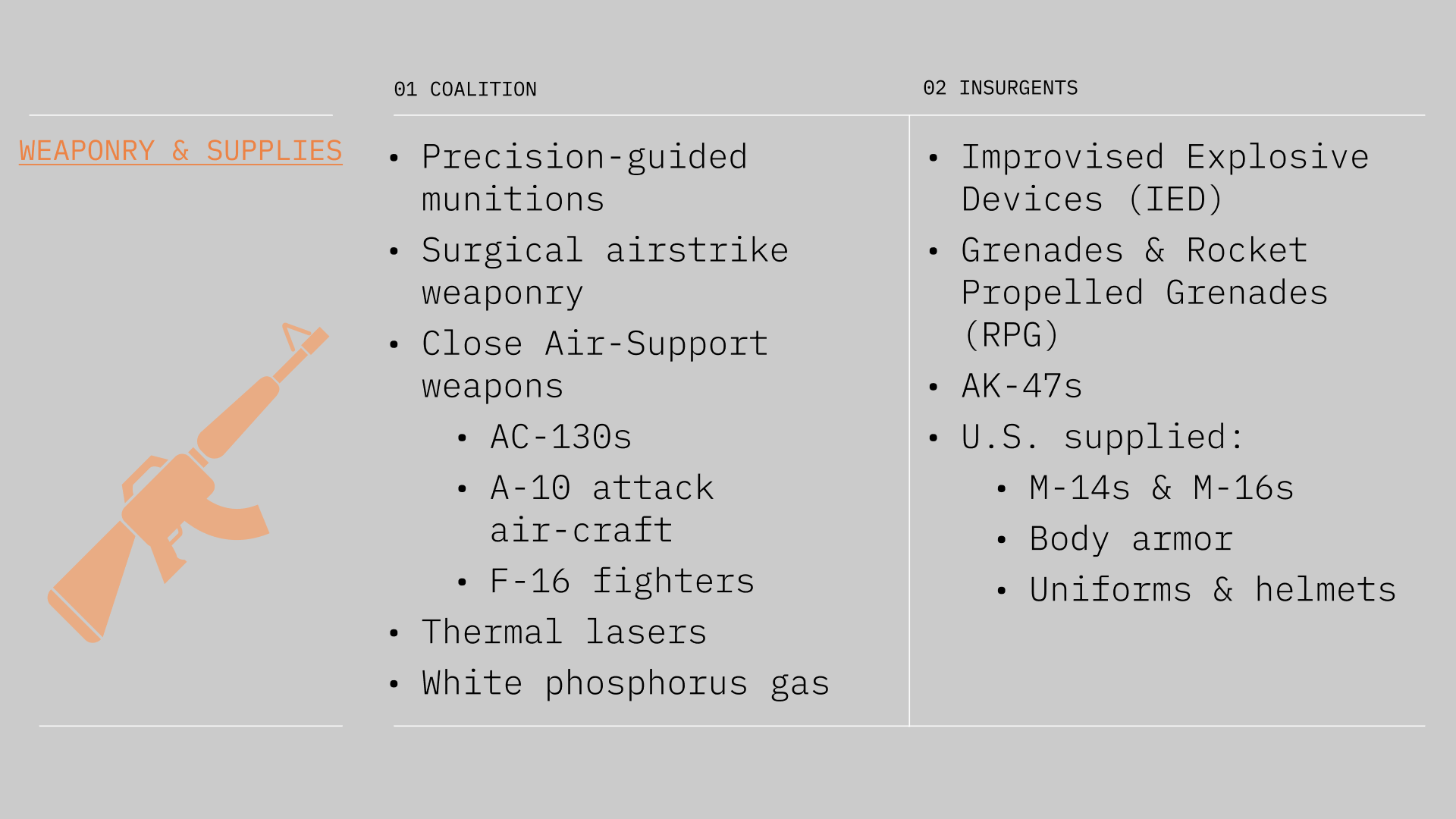
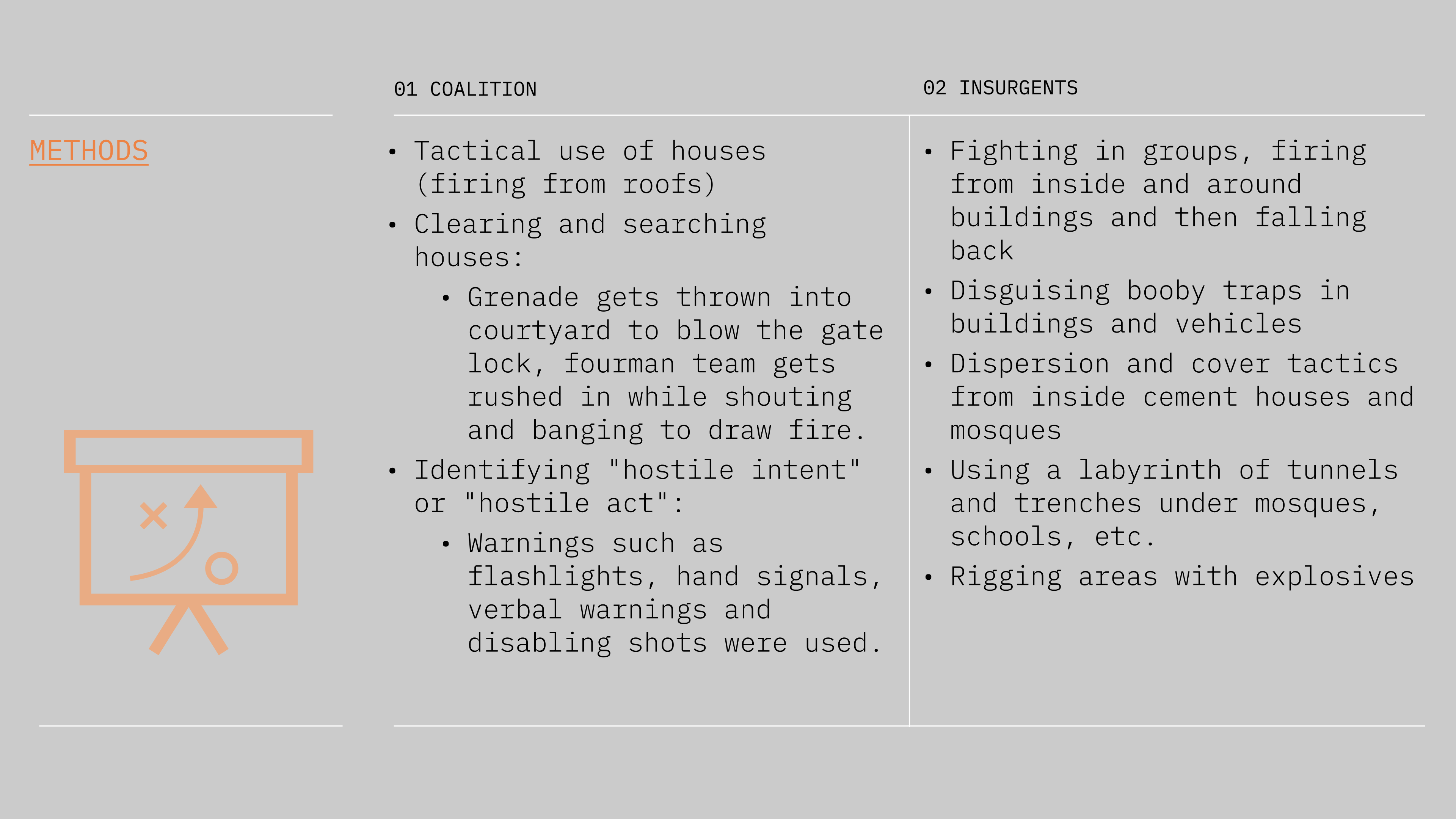
An overall comparison of the Coalition with Fallujah’s insurgents helps visualize their strength.

How did civilians die?
A common reason comes from a lack of precaution by the U.S. Marine troops as they cleared Fallujan houses. Many families were put in danger as US forces fired their rifles or threw fragmentation grenades as they entered every house. Deadly force was also used when encountering a family using arms to defend their home. Eventually, infantry units began disengaging from firefights in preference for tank main guns or AT4 rocket-launchers to “kill everyone inside” by destroying or bulldozing houses. Cases of misidentification of “hostile intent” were common, for example: Iraqis shot while handling cellphones after an explosion. Return fire from Marines was often disproportionate and indistinct. Photographic evidence shows the use of white phosphorus gas contributed to civilian death.
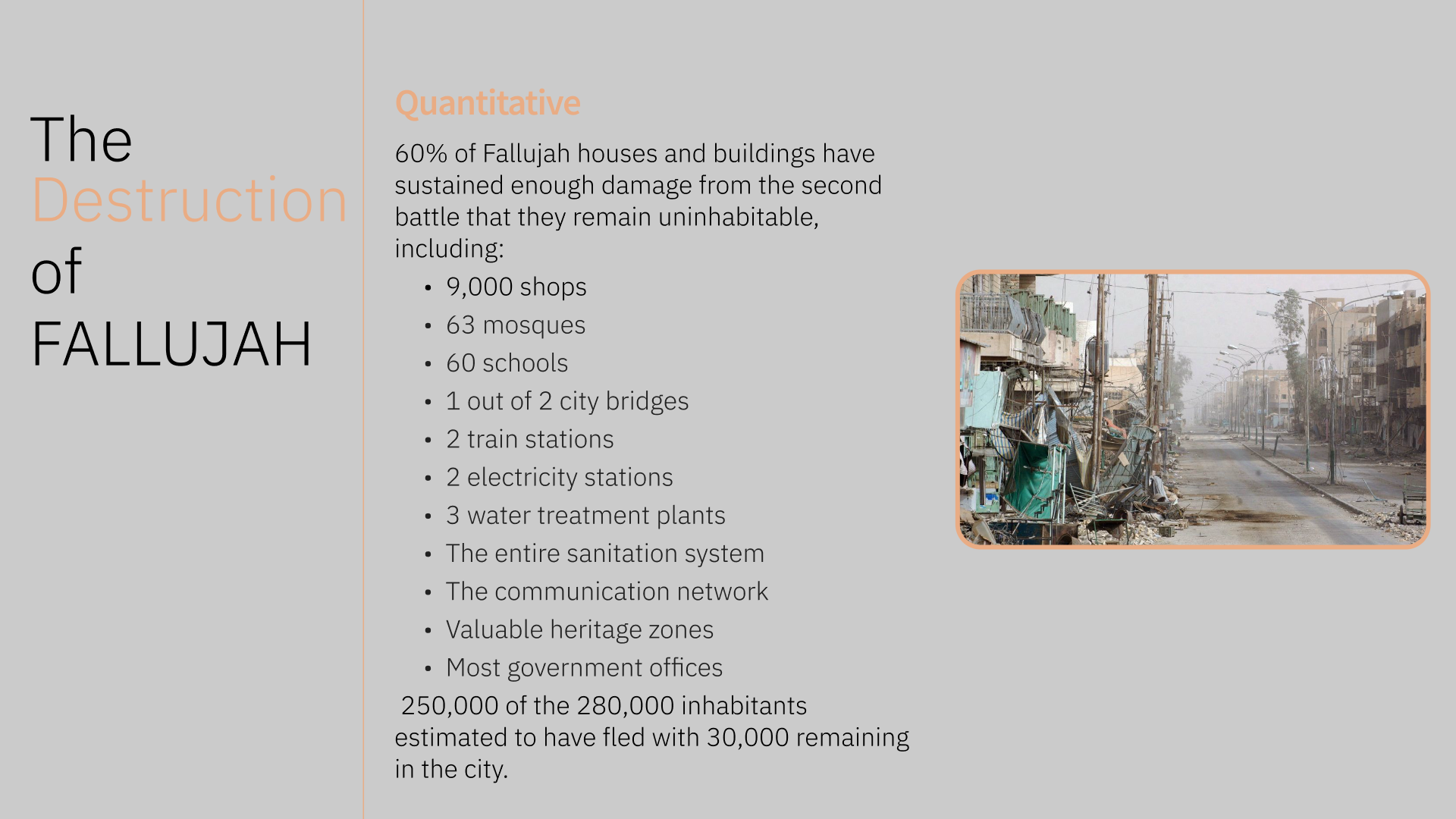
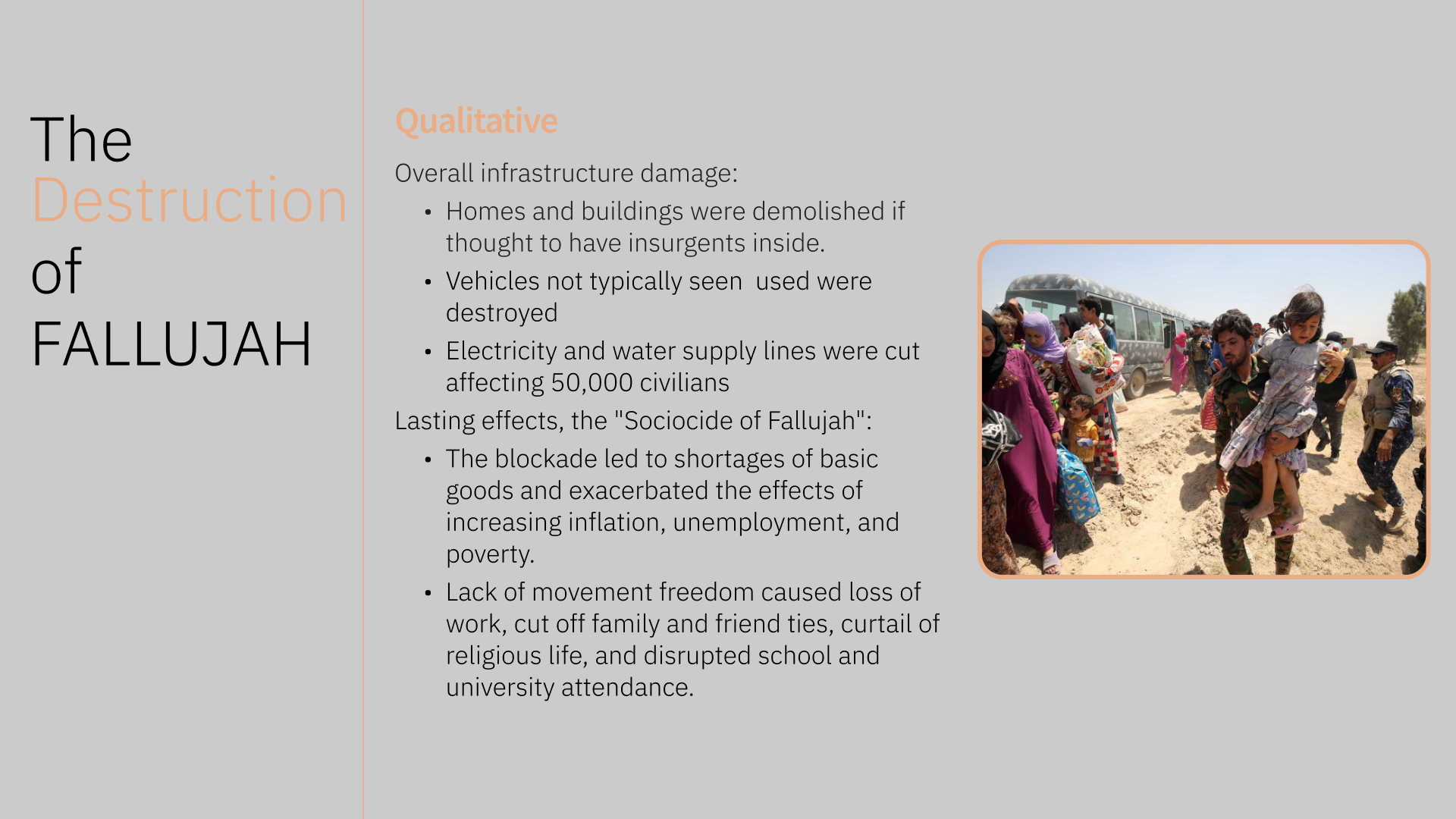
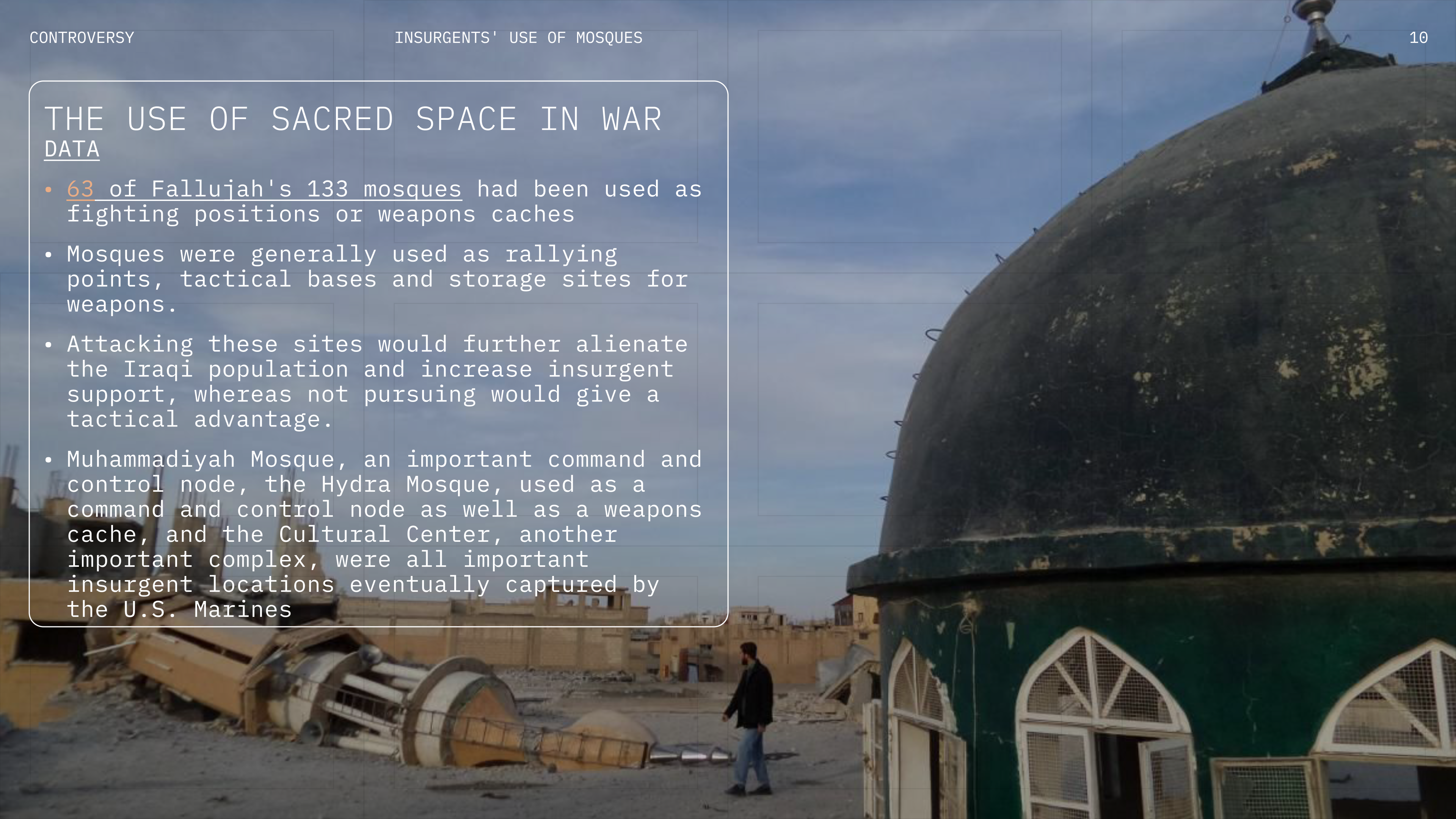
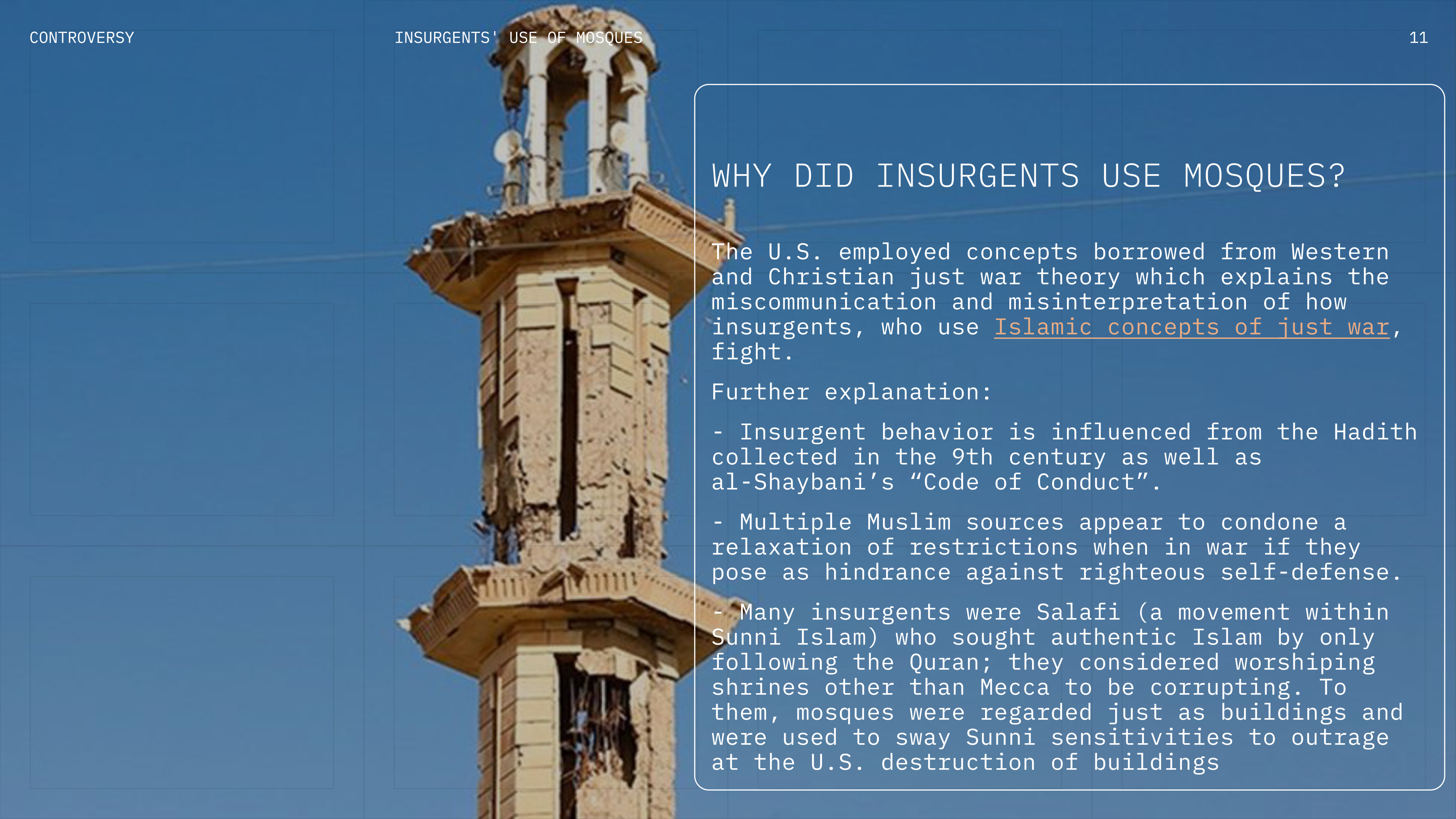
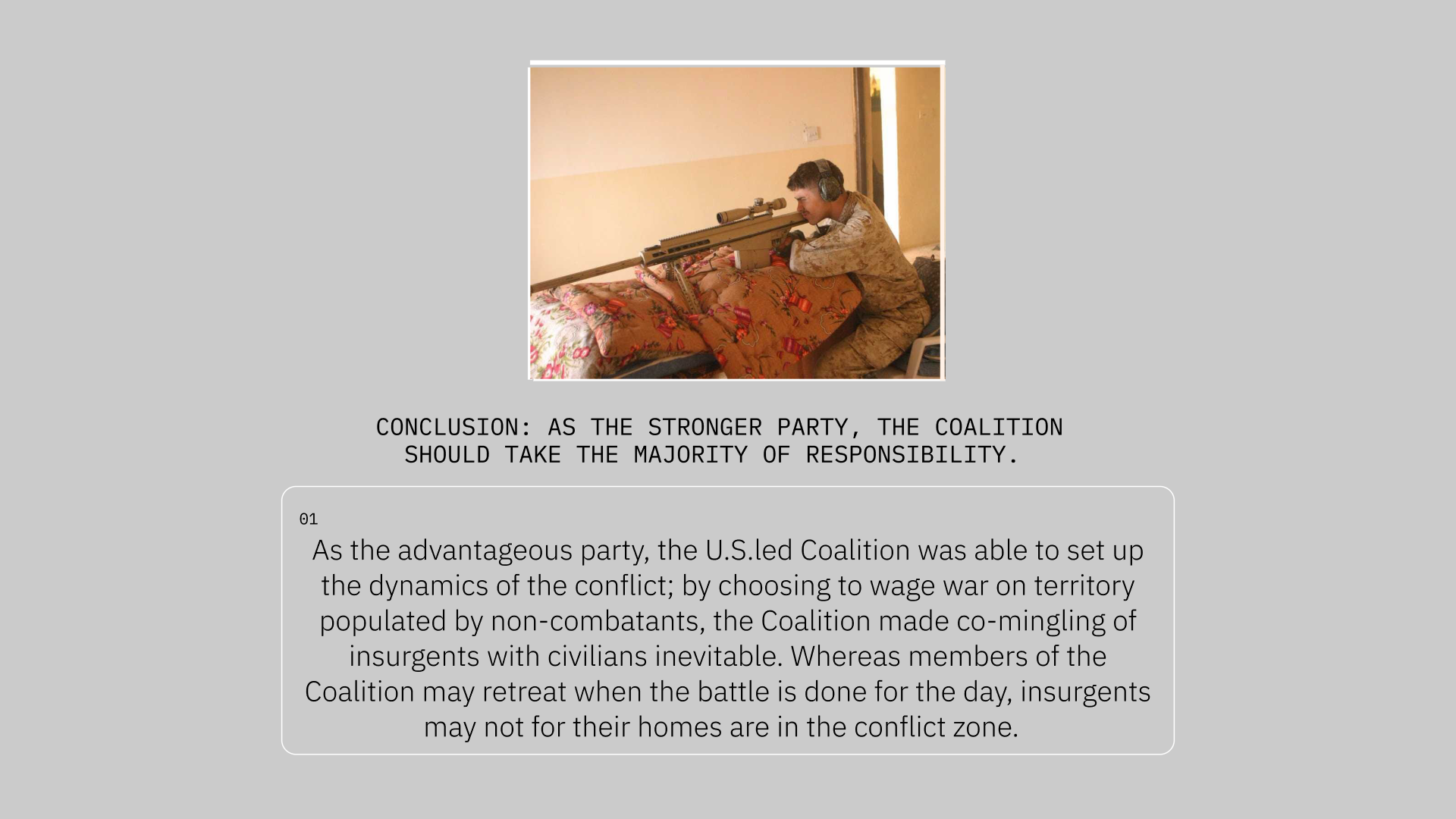
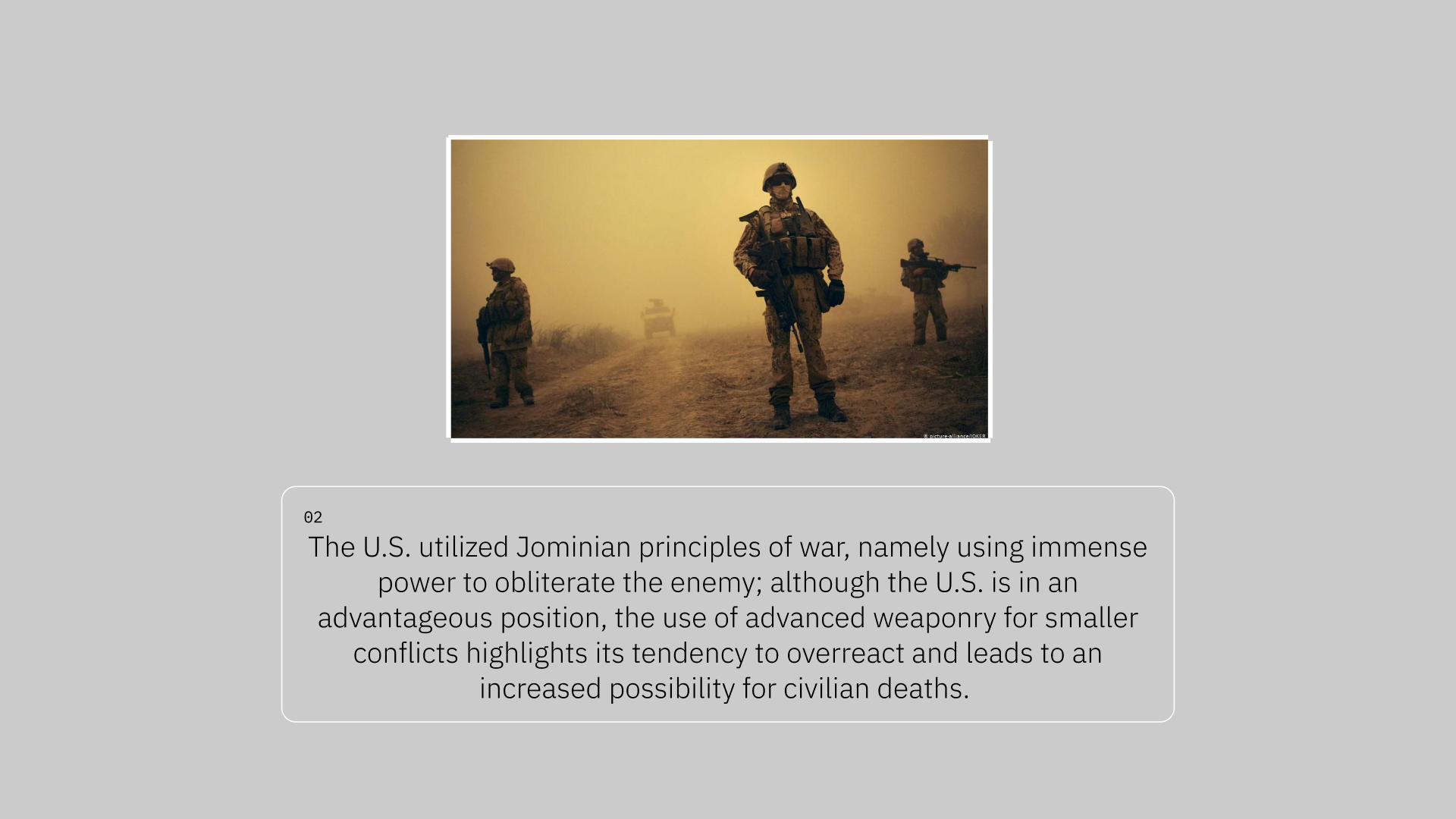
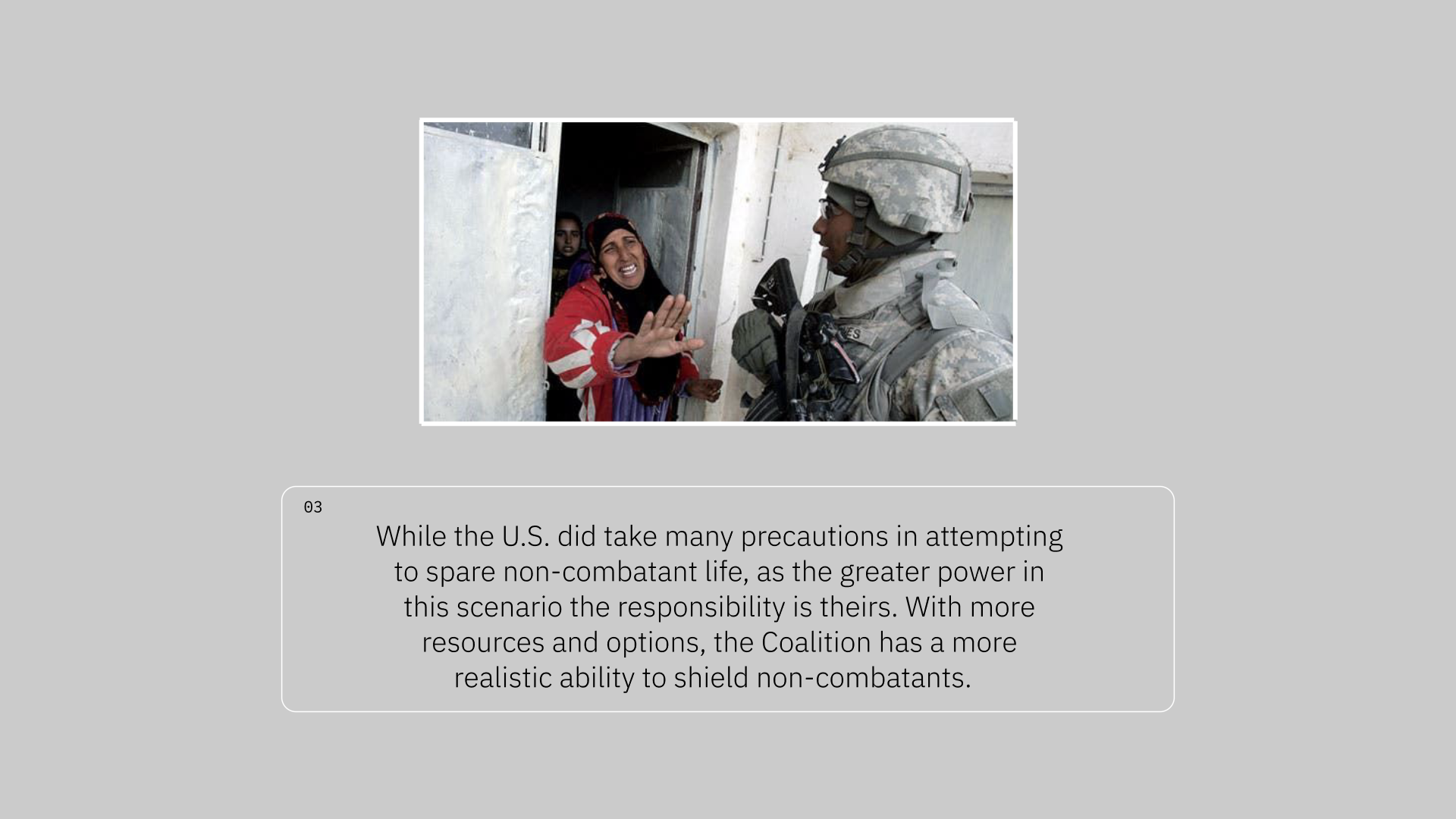
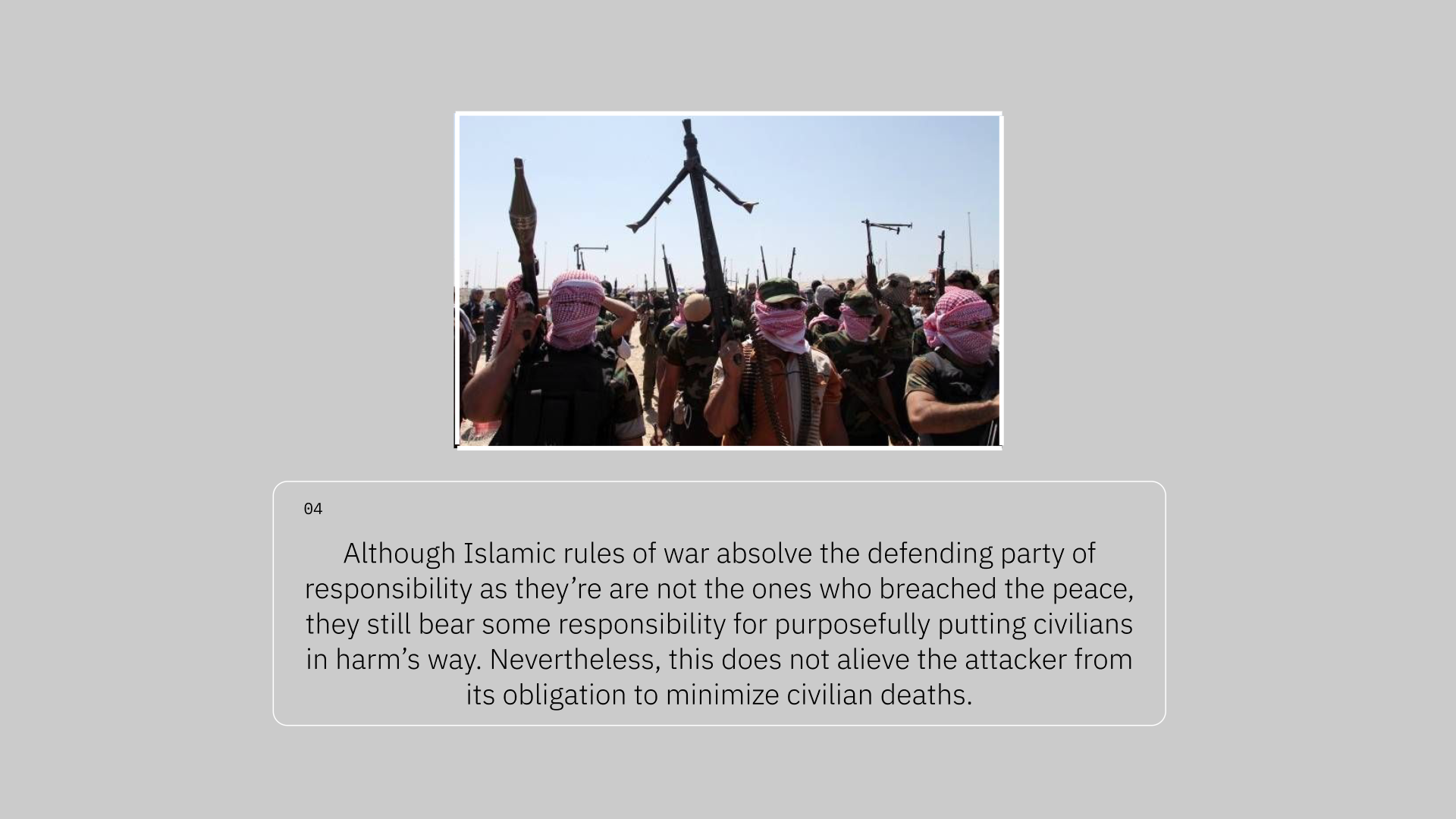
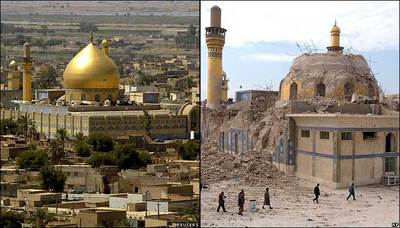
“In late November a high-ranking American general from Baghdad drove through the city…[h]e got out and looked up and down the devastated street, at the drooping telephone poles, gutted storefronts, heaps of concrete, twisted skeletons of burnt-out cars, demolished roofs, and sagging walls. ‘Holy shit,’ he said.”
(West, 316)
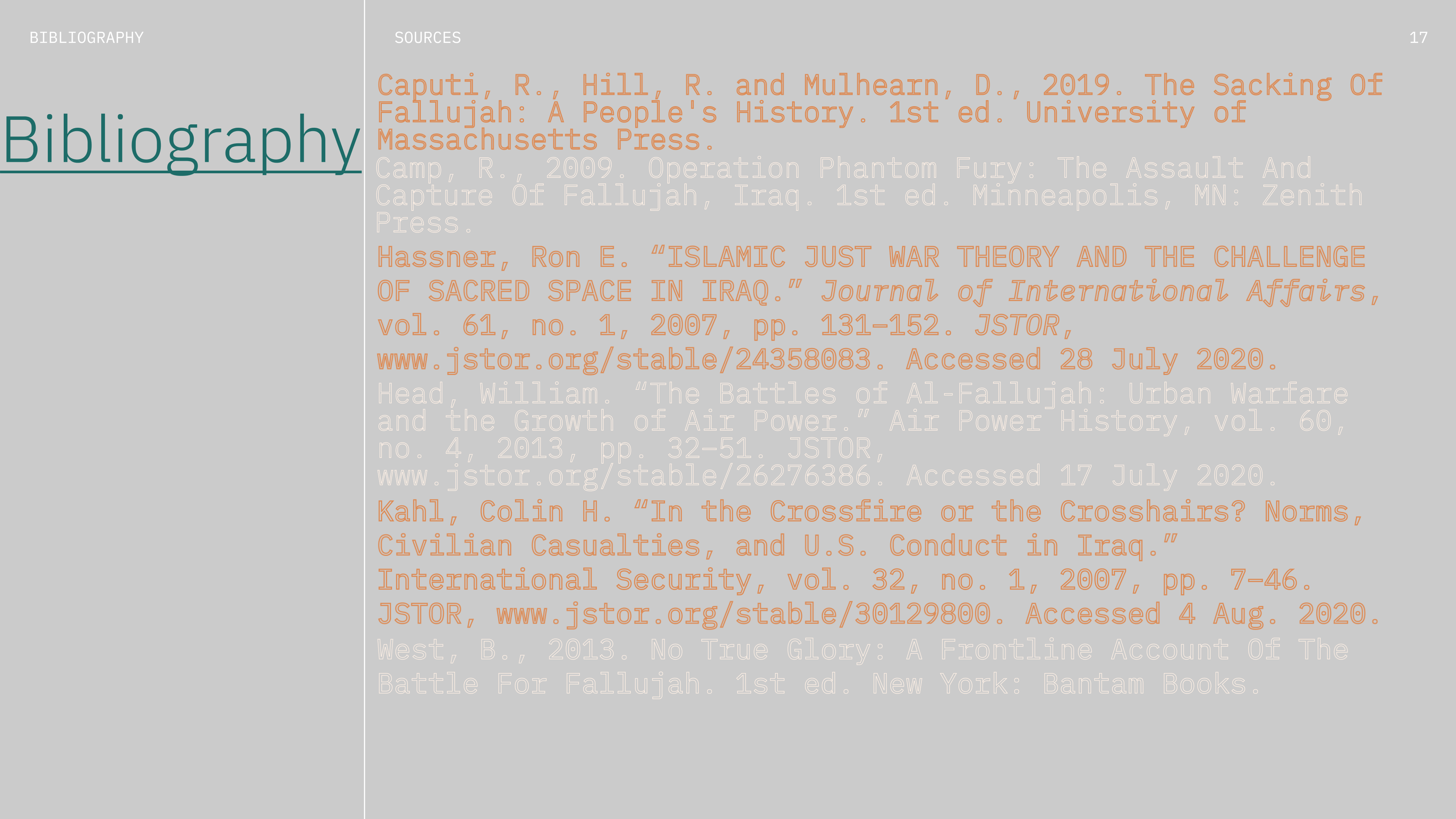
Thank you to Professor Cronin for allowing me to assist in this project, the ORCA team for giving me the opportunity to do research and further my career, and everyone who has taken the time to view my project. I appreciate you all very much!

